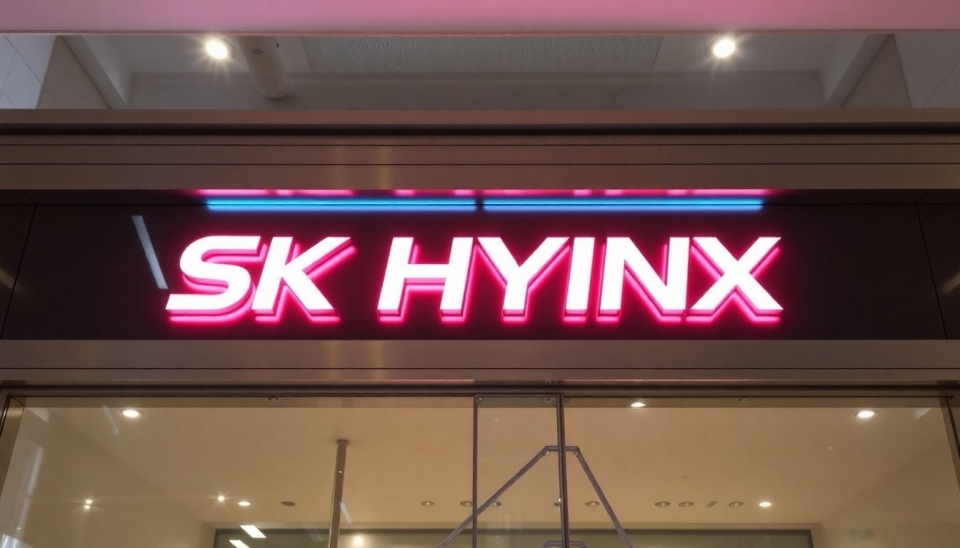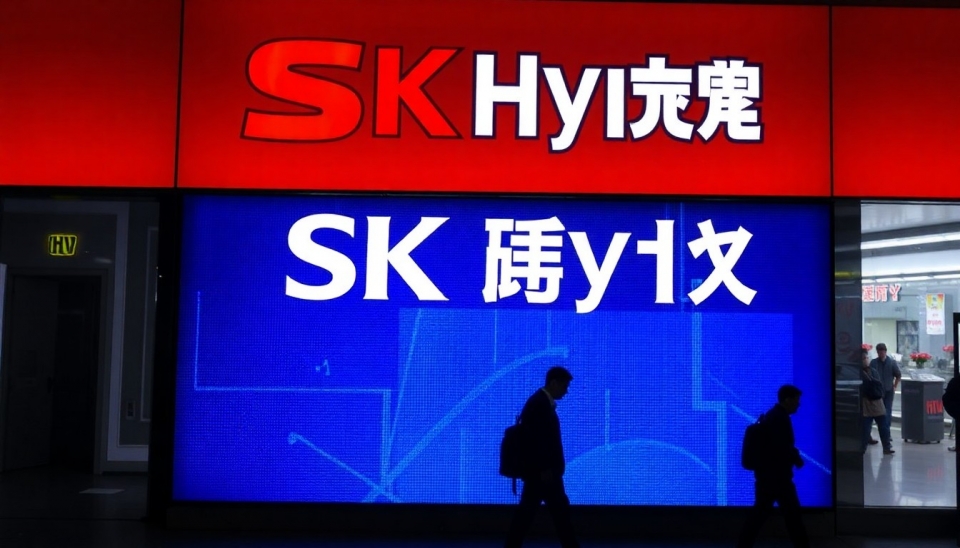
In a remarkable shift within the tech investment landscape, short-selling activity for South Korea's major semiconductor manufacturer, SK Hynix, has reached an all-time high. This surge comes as investors express heightened apprehensions regarding the company's future, particularly regarding its exposure to AI-driven demand fluctuations. The ramifications of these developments are resonating throughout the semiconductor sector, an industry already grappling with various economic uncertainties.
Data compiled through April 21, 2025, indicates that short-selling accounts for approximately 30% of SK Hynix's total trading volume. This figure marks a significant departure from historical averages, highlighting a growing sentiment among investors that the company may struggle to maintain profitability in an AI-dominated market landscape. Analysts attribute this spike in short-selling to various factors, including deteriorating financial outlooks and intensifying competition from rivals.
Investors are particularly worried about the potential impact of artificial intelligence on semiconductor demand. With the advent of generative AI and other tech advancements, companies like Nvidia and Advanced Micro Devices (AMD) are expected to capture substantial shares of the growing market. Observers suggest that if SK Hynix fails to innovate and adapt, it risks falling behind in the rapidly evolving tech ecosystem.
Furthermore, market trends indicate that while SK Hynix has historically been a stable player in the semiconductor industry, the current wave of short-selling reflects deep-seated concerns about its ability to leverage the AI boom effectively. With increasing reports about rising inventories and slowing global chip demand, potential investors are cautious about the company’s next moves.
Industry experts predict that unless SK Hynix can pivot to align with the new demands of AI technology, challenges will continue to mount. The pressure to adapt is unlike any faced in the past, with established norms being disrupted by the rapid pace of change driven by evolving consumer preferences and technological advancements.
SK Hynix's management has publicly acknowledged this challenge, emphasizing their commitment to innovation. They have outlined plans to increase investment in next-generation chips and explore new avenues for growth. However, amidst growing skepticism, many Wall Street analysts remain cautious, urging investors to weigh the potential risks before plunging into the stock.
As the semiconductor industry braces itself for a more competitive and technologically advanced future, the situation surrounding SK Hynix illustrates the broader uncertainties in the market. Investors and analysts alike will be keeping a close watch on how the company navigates these turbulent waters in the months to come.
With this perfect storm of challenges, SK Hynix's stock remains at a critical juncture. Whether the company's strategy can counteract the rising tide of short-selling will be pivotal in shaping its long-term trajectory in the semiconductor market.
In summary, while short-selling of SK Hynix may currently reflect pessimism about its future in the AI space, it also highlights an essential crossroads for the company to either evolve or risk becoming obsolete.
#SKHynix #ShortSelling #AIDemand #Semiconductors #MarketTrends #TechInvestments
Author: Emily Collins




